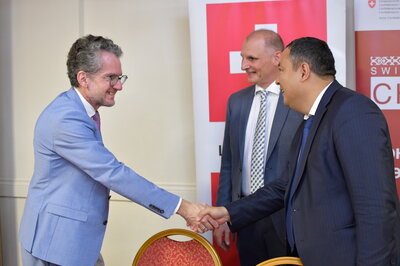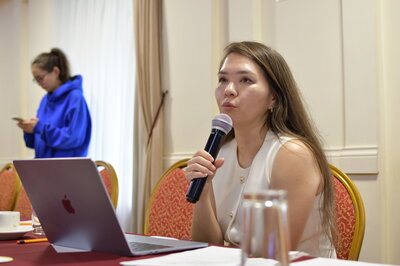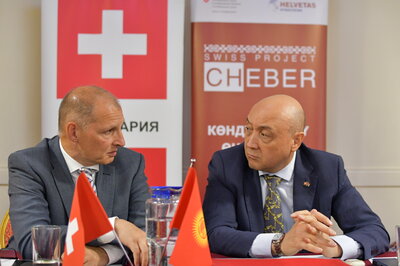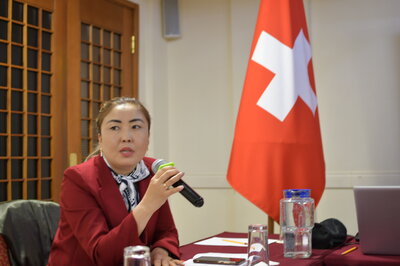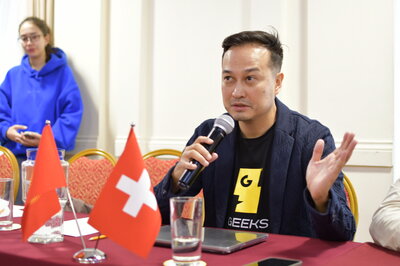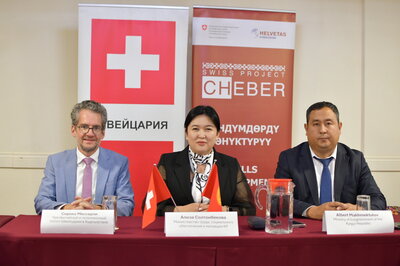The integration of digital technologies into non-formal education lays the foundation for effective collaboration between the state, the private sector, and civil society in addressing unemployment and responding to labor market demands
Bishkek, September 18, 2025 – In Bishkek, two important events of the Cheber project were held – the Working Group and the Steering Committee meetings.
The meetings brought together high-level representatives, including Aliza Soltonbekova, First Deputy Minister of Labor, Social Security, and Migration of the Kyrgyz Republic; Albert Makhmetkulov, Deputy Minister of Education of the Kyrgyz Republic; Siroco Messerli, Ambassador of Switzerland to the Kyrgyz Republic; Andrew Wilson, Regional Director of Helvetas Central Asia; Galina Veremeychik, Regional Director of DVV International, as well as representatives from the private sector and civil society organizations.
Discussions centered on the opportunities and challenges of digitalizing education, the use of online platforms, mobile applications, and the practical experience of the Ustat platform. Participants emphasized the importance of strong coordination between government bodies, training providers, and IT companies, noting that joint action is essential to ensure inclusiveness and accessibility in education for all segments of the population.
“As technological progress accelerates and digital transformation continues, integrating digital solutions is becoming essential for making education more accessible, flexible, and personalized,” noted Christian Wagner, Head of the Cheber Project. “This is especially important for vulnerable groups and individuals who need retraining and professional development.”
The Steering Committee also reviewed the results of recent studies on unemployment, highlighting the specific needs of unemployed youth. The project team underlined that developing informal professional skills, with active engagement of the private sector, directly supports labor market growth and helps young women and men find employment.
Both meetings reaffirmed the commitment of stakeholders to advancing a modern, inclusive, and market-oriented education and training system. The integration of digital technologies into non-formal education lays the foundation for effective collaboration between the state, the private sector, and civil society in addressing unemployment and responding to labor market demands.


